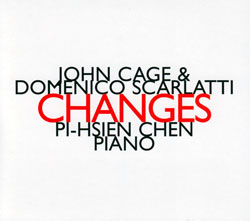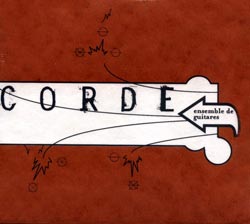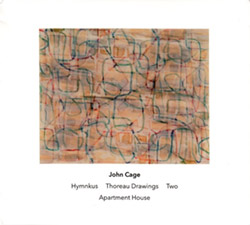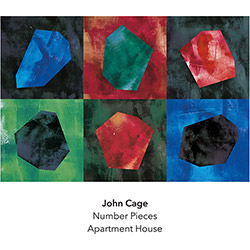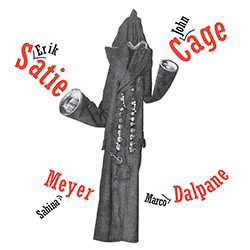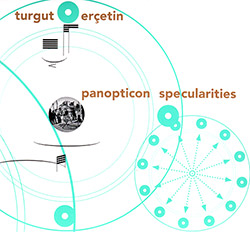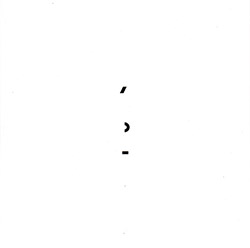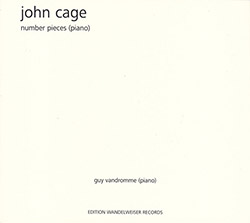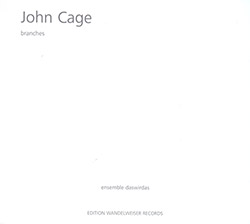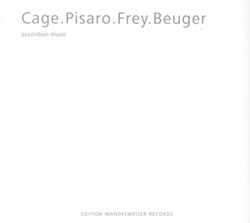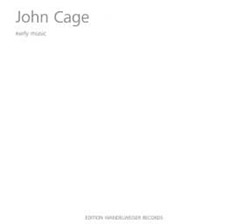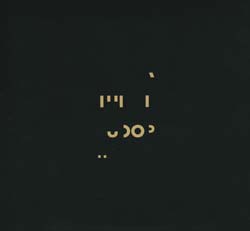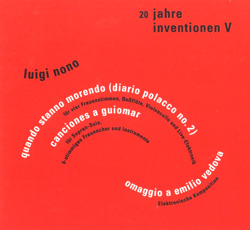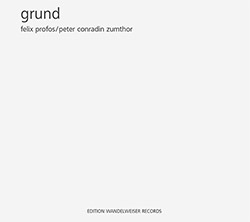![Cage, John: Klang der Wandlungen [3 CDs] (Edition Rz) Cage, John: Klang der Wandlungen [3 CDs] (Edition Rz)](https://www.teuthida.com/productImages/misc4/24050.jpg)
An impressive triple-CD box with recordings of some late works by John Cage, including "Seventy-Four for Orchestra, 1992", "103 for Orchestra, 1991, part 1 & 2", In a Landscape fur Harfe", "Postcard From Heaven fur Eine Bis Zwanzig Harfen", and some of "The Harmony of Maine"; including a 32 page booklet with photos and liner notes by Jakob Ullmann.
In Stock
Quantity in Basket: None
Log In to use our Wish List
Shipping Weight: 6.00 units
Sample The Album:
John Cage-composer
Gabriele Emde-harp
SWR Sinfonieorchester-orchestra
Jonathan Stockhammer-conductor
Kolner Rundfunk Sinfonieorchester-orchestra
Arturo Tamayo-conductor
Click an artist name above to see in-stock items for that artist.
Box set with 3 Cardstock gatefold sleeves with black & white photos, plu a 32 page booklet in German and English with black & white photos.
UPC: 4029455103339
Label: Edition Rz
Catalog ID: ed. RZ 1033Ð35
Squidco Product Code: 24050
Format: 3 CDs
Condition: New
Released: 2017
Country: Germany
Packaging: Box Set - 3 CDs + Booklet
CD 1-1 recorded in Freiburg, Germany, in 1992, by the SWR Sinfonieorchester Baden-Baden with conductor Jonathan Stockhammer.
CD 1-2 103 recorded in Cologhne, Germany, in 1991 by Kolner Rundfunk-Sinfonie-Orchester, with conductor Arturo Tamayo.
CD 2-1 recorded in Cologne, Germany, in 1991, by Kolner Rundfunk-Sinfonie-Orchester with conductor Arturo Tamayo.
CD 2-2 and 3 recorded in 1982.
CD 3-1 recorded in 1978.
"From the liner notes by Jakob Ullmann (translated by Peter Gebert and Molly McDolan):
"It was during a break in the inaugural meeting of the East German section of the IGNM (International Society for Contemporary Music) in March of 1990 when Reinhard Oehlschlägel, the long-standing music editor of Deutschlandfunk in Cologne, suggested taking advantage of the fact that John Cage was to attend the summer courses in Darmstadt as a special guest by inviting John Cage to East Berlin.
. . . Making Giacinto Scelsi's works accessible in the concert hall, the discovery of the quiet and the intangible in the late works of Luigi Nono, the deeply impressed reception even of distant traditions beyond the realm of music by Morton Feldman, and more, had led to the development of a sound phenomenon that would almost have to be called a style, and Cage's works such as 72, and perhaps even more, 103, seem to fit in seamlessly.
. . . Cage wrote In A Landscape in 1948 to a choreography of Louise Lippold; the rhythmic structure of the lyrical work echoes the structure of Lippold's dance with its 15 × 15 (5-7-3) measures, while the modal soundscape of the piece is clearly modeled on the aesthetic of Eric Satie. Thirty-four years later, Cage composed a piece for 1-20 concert harps, which was premiered in the same year in Minneapolis. In this piece, Postcard From Heaven, Cage draws on three double ragas, which are used both in their ascending and descending forms, and the characteristics of which may be utilized
. . . The thirteen parts of Some Of The Harmony Of Maine for organ are based upon movements from a chorale book published in 1794 by Supply Belcher in Boston. Each piece is indicated by the title and, in abbreviation, the meter of the chorale. Cage did not change any of the notes of the original movements; instead, he used chance operations to decide which notes were to be carried over, which to be removed, the duration of these notes, and in which organ registers they were to be played."
Box set with 3 Cardstock gatefold sleeves with black & white photos, plu a 32 page booklet in German and English with black & white photos.

The Squid's Ear!
Artist Biographies
• Show Bio for John Cage "John Milton Cage Jr. (September 5, 1912 - August 12, 1992) was an American composer, music theorist, writer, philosopher, and artist. A pioneer of indeterminacy in music, electroacoustic music, and non-standard use of musical instruments, Cage was one of the leading figures of the post-war avant-garde. Critics have lauded him as one of the most influential American composers of the 20th century. He was also instrumental in the development of modern dance, mostly through his association with choreographer Merce Cunningham, who was also Cage's romantic partner for most of their lives. Cage is perhaps best known for his 1952 composition 4′33″, which is performed in the absence of deliberate sound; musicians who present the work do nothing aside from being present for the duration specified by the title. The content of the composition is not "four minutes and 33 seconds of silence," as is often assumed, but rather the sounds of the environment heard by the audience during performance. The work's challenge to assumed definitions about musicianship and musical experience made it a popular and controversial topic both in musicology and the broader aesthetics of art and performance. Cage was also a pioneer of the prepared piano (a piano with its sound altered by objects placed between or on its strings or hammers), for which he wrote numerous dance-related works and a few concert pieces. The best known of these is Sonatas and Interludes (1946-48). His teachers included Henry Cowell (1933) and Arnold Schoenberg (1933-35), both known for their radical innovations in music, but Cage's major influences lay in various East and South Asian cultures. Through his studies of Indian philosophy and Zen Buddhism in the late 1940s, Cage came to the idea of aleatoric or chance-controlled music, which he started composing in 1951. The I Ching, an ancient Chinese classic text on changing events, became Cage's standard composition tool for the rest of his life. In a 1957 lecture, Experimental Music, he described music as "a purposeless play" which is "an affirmation of life - not an attempt to bring order out of chaos nor to suggest improvements in creation, but simply a way of waking up to the very life we're living"." ^ Hide Bio for John Cage • Show Bio for Gabriele Emde "Gabriele Emde-Hauffe was born in 1953 in Darmstadt, Germany. She received a humanistic education at a local grammar school in Darmstadt and started studying the harp after her A-levels, first in Darmstadt and finishing in Cologne. Conducted by Péter Eötvös, she worked out modern chamber music and modern improvisation by J. G. Fritsch and Vinko Globokar. Passing her exams in 1980 and 1981, she continued her studies of musical science at Cologne University, based on her thesis, "The Harp between Myth and Reality." From 1981 to 1983 she was a member of Die Junge Deutsche Philharmonie and Ensemble Modern, and collaborated on productions of contemporary music with Ensemble-Köln and Ensemble 13, as well as the NDR-Sinfonieorchester Hamburg. She has performed the solo harp at various international festivals, among them many premieres and international radio, TV, and record productions. At the invitation of the Goethe-Institut, she toured North America in 1982, presenting Walter Zimmermann's works, and also performed in South Korea; her career as a performer has included performances of contemporary music by Berio, Boulez, Cage, Globokar, N. A. Huber, Schönberg, Stockhausen, Webern, I. Yun, B. A. Zimmermann, and W. Zimmermann. Until 1992 she taught harp classes in Cologne and Düsseldorf. Since 1991 she has been teaching her private harp class in Darmstadt. This CD contains recordings from 1985-'87 of pieces by John Cage, Hans Otte, and Lou Harrison." ^ Hide Bio for Gabriele Emde • Show Bio for Jonathan Stockhammer "In just a few years, Jonathan Stockhammer has made a name for himself in the worlds of opera, symphonic repertoire, and contemporary music. He first studied Chinese and political science before moving on to studies in composition and conducting in his hometown of Los Angeles. During his studies, he filled in for a series of concerts with the Los Angeles Philharmonic, after which he was asked to become chief conductor Esa-Pekka Salonen's assistant. After completing his studies, Jonathan Stockhammer moved to Germany where he formed close relationships with well-known European ensembles such as Ensemble Modern, Collegium Novum Zürich and Ensemble Resonanz. As a superb communicator, he has a great talent not only for presenting concerts but also for working on an equal footing with a variety of performers - whether they are young musicians and rappers or stars such as Imogen Heap or the Pet Shop Boys. Opera is central to Jonathan Stockhammer's work. The operas he has conducted, including Die Dreigroschenoper, Zemlinsky's Eine florentinische Tragödie, Sciarrino's Luci mie traditrici and Monkey: Journey to the West by Damon Albarn, identify him as a conductor who welcomes and masters the difficulties presented by complex scores and special, interdisciplinary productions. He has been a regular guest at the Opéra de Lyon since first appearing there in 1998, where he has since conducted the successful French premiere of Dusapin's Faustus, the Last Night. In 2009, he premiered Wolfgang Rihm's Proserpina with the Stuttgart Radio Symphony Orchestra, and also conducted the orchestra in Rihm's Deus Passus. In 2010, he conducted the Orchestre Philharmonique de Radio France in a production of Sondheim's A Little Night Music at the Théâtre du Châtelet Paris. In February 2013, he made his debut at the New York City Opera in Thomas Adès' Powder Her Face. In the spring of 2016, he made his debut at the Vienna State Opera in a new production of Peter Eötvös's Tri Sestri (Three Sisters) and premiered Georg Friedrich Haas's new opera KOMA at the Schwetzingen Festival. Most recently, he made his debuts at the Theatre Basel with Philip Glass' Satyagraha in a production by Sidi Larbi Cherkaoui and at the Wiener Festwochen.Jonathan Stockhammer has worked with numerous renowned orchestras such as the Oslo Philharmonic, NDR Symphony Orchestra Hamburg, Czech Philharmonic Orchestra, Philharmonia Orchestra and the Sydney Symphony Orchestra, and has appeared at the Salzburg Festival, Lucerne Festival, Donaueschingen Festival, Biennale Venice and Wien Modern. Aside from conducting classical and romantic masterpieces and contemporary classical works, Jonathan Stockhammer enjoys delving into music that blurs the boundaries between classical music, rock, pop, and hip-hop. His CD Greggery Peccary & Other Persuasions with Ensemble Modern (RCA, 2003), featuring works by Frank Zappa, won an Echo Klassik Award. He also recorded a new soundtrack to Sergei Eisensteins's 1925 film The Battleship Potemkin, composed and performed by the Pet Shop Boys. His live recording of The New Crystal Silence with Chick Corea, Gary Burton and the Sydney Symphony Orchestra won a Grammy in 2009. His collaboration with spoken word artist Saul Williams on Said the Shotgun to the Head, featuring music composed by Thomas Kessler, has also been particularly successful. To date, he has conducted the work with the WDR Symphony Orchestra, Stuttgart Radio Symphony Orchestra and the Oslo Philharmonic. Highlights of his 2017/18 season include his debut at the Komische Oper Berlin with Philip Glass' Satyagraha, music theatre productions at Theater Bern and Teatro Massimo Palermo, his debut concert with the Mahler Chamber Orchestra and re-invitations to the Orchestre Philharmonique de Radio France and Ensemble Modern amongst others." ^ Hide Bio for Jonathan Stockhammer • Show Bio for Arturo Tamayo "Arturo Tamayo was born in Madrid and studied music at the Madrid Conservatory and conducting in Basel with Pierre Boulez and in Vienna with Witold Rowicki. He also studied composition at the Freiburg Musikhochschule with Klaus Huber and Wolfgang Fortner. Arturo Tamayo divides his activities as a conductor between the concert hall and the opera house, in a repertoire ranging from the Baroque to the contemporary. He has regularly conducted throughout Europe, America and Japan, and appeared at a number of major opera houses, including Covent Garden, the Deutsche Oper Berlin, the Vienna State Opera, Opéra de Paris, Teatro Real in Madrid, Rome Opera House, and many others. Tamayo has recorded for Deutsche Grammophon, Capriccio, Claves, BIS, Timpani, and several other labels." ^ Hide Bio for Arturo Tamayo
4/22/2024
Have a better biography or biography source? Please Contact Us so that we can update this biography.
4/22/2024
Have a better biography or biography source? Please Contact Us so that we can update this biography.
4/22/2024
Have a better biography or biography source? Please Contact Us so that we can update this biography.
4/22/2024
Have a better biography or biography source? Please Contact Us so that we can update this biography.
Track Listing:
CD1
1. Seventy-Four Fur Orchester (1992) 12:16
2. 103 Fur Orchester (Teil 1) (1991) 51:00
CD2
1. 103 Fur Orchester (Teil 2) (1991) 39:49
2. Postcard From Heaven fur Eine Bis Zwanzig Harfen (1982) 21:25
3. In A Landscape fur Harfe (1948) 9:17
CD3
1. Some Of "The Harmony Of Maine" fur Orgel (1978) 59:05
Compositional Forms
Avant-Garde
John Cage
Large Ensembles
Staff Picks & Recommended Items
New in Compositional Music
Search for other titles on the label:
Edition Rz.

![Cage, John: Klang der Wandlungen [3 CDs] (Edition Rz) Cage, John: Klang der Wandlungen [3 CDs] (Edition Rz)](https://www.teuthida.com/productImages/full/24050.Full.jpg)

